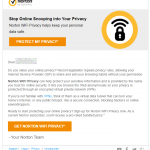I’ve been experimenting with a Pi-Hole for the past two weeks. This evening I reconfigured the home network so all of our devices will default to using the Pi-Hole for IP address assignment and DNS.
Next, I set up a group so my wife’s work computer will be exempted from DNS filtering. A web-based application shouldn’t break because of a blocked tracker, but I don’t want to troubleshoot any collateral damage.
Finally, I reconfigured my phone and desktop to get their IP and DNS information dynamically instead of the static settings they’d been using while I evaluated the set up.
If all goes according to plan, I just sit back and relax and no longer have to deal with ads for an item I bought last week following me across the web for the next month.
(Public domain image from US National Aeronautics and Space Administration)


